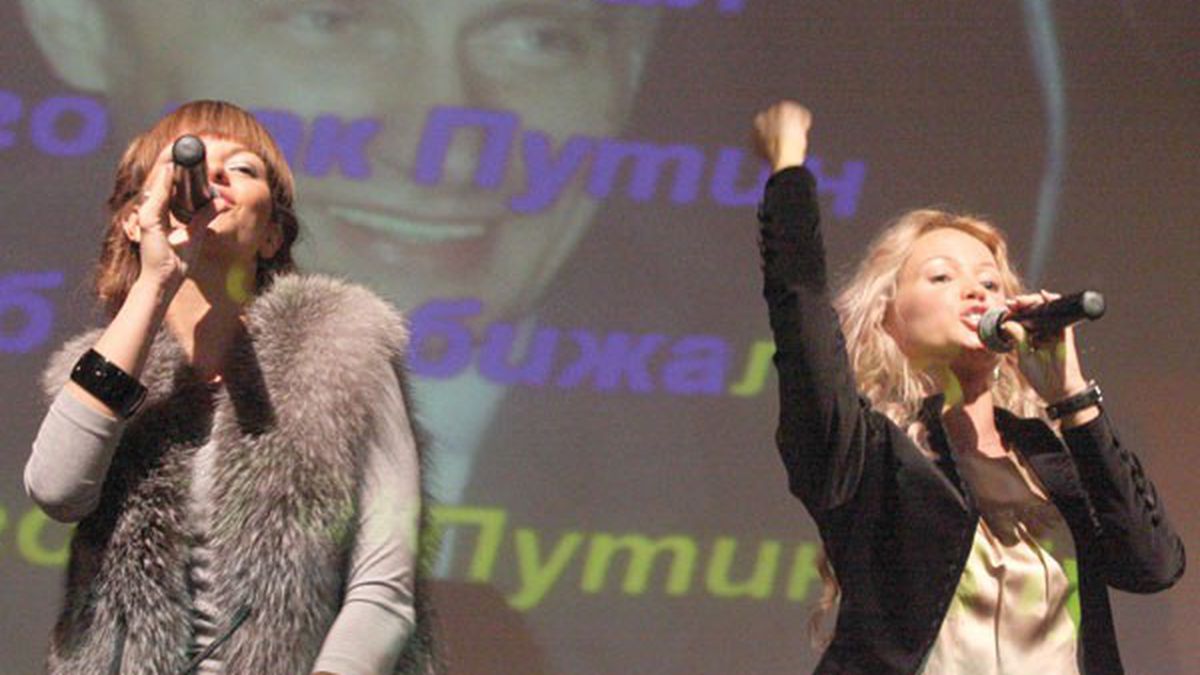Call it 60 Minutes for the MTV generation: A new Bay Area-produced show is putting a captivating new spin on music television and, in the process, just may succeed in revitalizing PBS.
The template for Sound Tracks is that of your typical newsmagazine show — three segments, of about fifteen minutes each, accompanied by earnest narration and sweeping videography. But the subject of these stories is always music, in various forms and from various perspectives. “It’s a story-driven music show about how music affects the world in many different facets,” said Mirissa Neff, one of the show’s reporters. “It’s really about the stories behind music, whether music is in the foreground or the background.”
In this, the show is unique, according to Stephen Talbot, a San Francisco-based PBS veteran and music buff who serves as the show’s executive producer. “There’s nothing like it on TV. There’s music performance shows, there’s some really interesting music talk shows … but there’s nothing that blends performance and journalism in this way.”
It’s an intriguing premise, and almost unerringly well executed by a cast and crew of veteran journalists and self-described music fanatics. The one-hour pilot — available now online and debuting this weekend on PBS — takes viewers from Moscow to Nigeria to Kazakhstan to Portugal for a series of segments that illuminate the intersection between politics and culture: The stories explore, respectively, the background behind a bizarre strain of Russian propaganda-pop, the living legacy of Seventies-era Nigerian music legend and activist Fela Kuti, and what’s become of the Kazakh national anthem, post-Borat. At the end, there’s a short, story-less performance by Mariza, Portugal’s queen of soul.
What’s great about Sound Tracks is the fluidity with which performance and storytelling are integrated and the deftness with which they are balanced. It’s not just a bunch of performances stacked back-to-back, nor is it interested in telling us about how music will solve all the world’s problems. But at the same time, Sound Tracks won’t just give you a few notes of something good before the music goes down and the actual reporting begins. Music is treated as what it is — nothing more, nothing less — and becomes a metaphor for political persuasion, for national identity, for familial responsibility. “It’s really an exploration of the world through the lens of music,” said David Davis, one of the show’s executive producers.
Sound Tracks was born about two years ago right here in the East Bay — on the corner of Euclid and Hearst, to be exact, where Bob Calo and Talbot, both PBS veterans, worked across the street from each other, Calo as a professor at Berkeley’s journalism school and Talbot as a producer of Frontline/World, a younger, hipper spinoff of PBS’s long-running Frontline. Talbot and Calo, along with Marco Werman — a radio veteran who serves as the show’s host and lead reporter — were interested in doing a show that could appeal to a new audience. They picked up a crew of young reporters, convinced Portland-based Oregon Public Broadcasting network to sign on as a sponsor, and, in September of 2008, pitched the show to PBS’ head honchos in DC, who were very interested, according to Neff, a longtime Bay Area resident, artist, and world-music DJ. The producers were given half the funding they needed for a pilot, and they started filming at the beginning of last year. They managed, even with the poor economy, to round up sponsors — AT&T, The Center for Asian-American media, Pacific Islanders in Communications, Latino Public Broadcasting, Native American Public Telecommunications, and the National Black Programming Consortium, among others — and had wrapped the first episode by April, according to Talbot, a longtime Bay Area resident who worked for Frontline for almost two decades before founding his own production company, the Talbot Players.
After the pilot airs, the Sound Tracks team is, as Neff said, “in the fingers-crossed period” as they wait for PBS’ central office to make a decision about the show’s future, based on ratings, viewer response, and press coverage. And even after the show is approved for more episodes, Talbot estimated that he and the rest of the show’s producers will need to come up with about half the show’s funding, which they plan to do by soliciting support from foundations, individual donors, and corporate partners. “Now, my job becomes hustling money,” Talbot said.
Part of what Talbot and the rest of the cast and crew are banking on is the ability of Sound Tracks to turn a younger, more diverse set of viewers on to PBS, whose average viewer is 55, according to Davis. “[PBS] is interested in reaching out to a younger demographic,” Neff said. “They recognize that it’s in their best interest, that it’s what they need to do to survive.”
Talbot concurs. “I think PBS knows that they need to attract younger viewers, I think they want to liven up their schedule, and I think they have a sense that this is a how that could do that,” he said. “I fervently hope that this appeals to a more ethnically, racially diverse group, and a younger audience as well.”
According to Davis, from what he and PBS have seen of responses to the show’s online pilot, the show is succeeding in reaching a younger audience than typically watches PBS prime-time programming.
And even if it can’t exactly turn the entire YouTube generation on to the same channel that broadcasts Masterpiece Theater, the format and tone of Sound Tracks — down to the appealingly young and diverse set of reporters and the title sequence, set to music by none other than Vampire Weekend — certainly has the potential to bridge the gap between boomers and their children. Said Neff: “There’s a lot of subject matter here that is, on the face of it, appealing to younger audiences, but because of the format, because we’re doing these longer-form pieces, it’s not quite as hyper as, say, MTV.”













